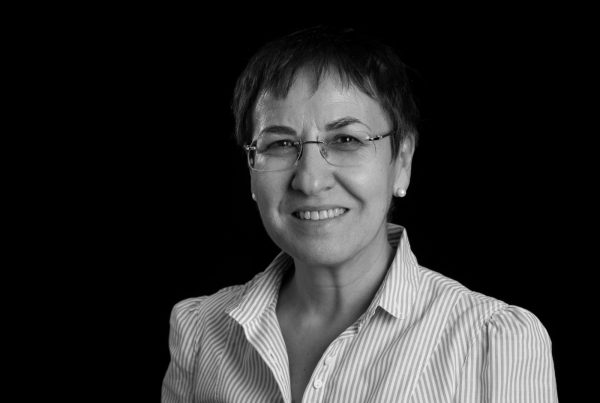Pura Muñoz-Cánoves studied Pharmacology in the University of Valencia and obtained her PhD in 1990 in the Autonomous University of Madrid for work carried out at The Scripps Research Institute (La Jolla, USA). She did postdoctoral work at the University of California-San Diego and The Scripps Research Institute, and in 1994 joined the Cancer Research Institute in Barcelona as a postdoc, becoming an independent group leader in 1997. In 2002 she moved to the Center for Genomic Regulation (CRG) in Barcelona where became a senior scientist in 2007. Late 2008 she moved to the Pompeu Fabra University (UPF) after becoming an ICREA Research Professor. Through the UPF, she holds a collaborative agreement with the Spanish National Center on Cardiovascular Research. She is Member of EMBO and the Academia Europaea. Her research focuses on deciphering the mechanisms regulating skeletal muscle regeneration and growth, in physiology and disease.
Research interests
Our main objective is to understand the mechanisms regulating tissue regeneration in aging and disease. Research is specially focused on skeletal muscle. Recent studies from the laboratory have shed light on how skeletal muscle maintains its regenerative capacity throughout life. In particular, we have uncovered age-associated changes that muscle resident stem cells (and niche cells) undergo that modify their response to injury as well as new strategies to reverse these changes. Slowing or inhibiting the aging-related decline in tissue function is one of the most fascinating challenges in regenerative medicine.
Selected publications
- Nicolas-Avila JA, Pena-Couso L, Muñoz-Canoves P & Hidalgo A 2022, 'Macrophages, Metabolism and Heterophagy in the Heart', Circulation Research, 130, 3, 418 - 431.
- Mashinchian O et al. 2022, 'In vivo transcriptomic profiling using cell encapsulation identifies effector pathways of systemic aging', Elife, 11, e57393.
- Han L et al. 2022, 'Cell transcriptomic atlas of the non-human primate Macaca fascicularis', Nature, 604, pages 723–731.
- Vaca-Dempere M, Kumar A, Sica V & Muñoz-Canoves P 2022, 'Running skeletal muscle clocks on time- the determining factors', Experimental Cell Research, 413, 1, 112989.
- Chen A et al. 2022, 'Spatiotemporal transcriptomic atlas of mouse organogenesis using DNA nanoball-patterned arrays', Cell, 185, 10, 1777 - +.
- Hong X et al. 2022, 'Mitochondrial dynamics maintain muscle stem cell regenerative competence throughout adult life by regulating metabolism and mitophagy', Cell Stem Cell, 29, 9, 1298 - +.
- Roman W & Muñoz-Canoves P 2022, 'Muscle is a stage, and cells and factors are merely players', Trends In Cell Biology, 32, 10, 835 - 840.
- Guerrero A, Innes AJ, Roux P-F, Buisman SC, Sonja C, Jung J, Ortet L, Moiseeva V, Wagner V, Robinson L, Ausema A, Potapova A, Perdiguero E, Weersing E, Aarts M, Martin N, Wuestefeld T, Muñoz-Canoves P, de Haan G, Bischof O & Gil J 2022, '3-Deazaadenosine alleviates senescence to promote cellular fitness and cell therapy efficiency in mice', Nature Aging, 2, 9, 851 - +.
- Sousa-Victor, P, García-Prat L, Muñoz-Cánoves P 2022, 'Control of satellite cell function in muscle regeneration and its disruption in ageing'. Nature Reviews Molecular Cell Biology. 23, pages204–226
- Hong X, Campanario S, Ramírez-Pardo I, Grima-Terrén M, Isern J, Muñoz-Cánoves P. 2022, 'Stem cell aging in the skeletal muscle: The importance of communication'. Ageing Res Rev. 73. 101528.
